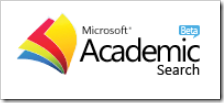Sistem Jaminan Halal: Studi Komparatif Indonesia dan Malaysia
Abstract
Consumption of the halal product industry in Indonesia has great potential to be developed, because Indonesia is a Muslim-majority country. In recent years, the development of halal food consumption trends has increased significantly, not only in Muslim-majority countries but this is also experienced by Muslim minority countries. Halal food market demand encourages food producers to obtain halal certification from local authorities. This study aims to compare the mechanism and application of halal certification in Indonesia and Malaysia. This study uses a qualitative descriptive approach and the type of research used in this study is a literature study that collects information relevant to the research objectives. The conclusion of this study is that both Indonesia and Malaysia, both apply almost the same principles, authority and halal certification mechanism. One of them is for every producer who will propose halal certification, is required to go through a series of tests in which the test results will be submitted to the Fatwa Commission which is authorized to decide whether or not a product is halal.
Keywords
Full Text:
PDFReferences
Ahmed, A., 2008. Marketing of halal meat in the United Kingdom: Supermarkets versus local shops. Br. Food J., 110: 655-670.
Aminuddin, Muh. Zumar, Sertifikasi Produk Halal: Studi Perbandingan Indonesia dan Thailand, Jurnal Shahih Vol. 1 Tahun 2016.
An Inclusive Ethical Economy State of the Global Islamic Economy Report 2018/2019, Dubai International Financial Centre.
Baharudin Othman, Sharifudin Md. Shaarani dan Arsiah Bahron, 2016, The Potential of ASEAN in Halal Certifcation Implementation: A Review, The Social Sciences 11 (Special Issue 7): 7449-7454, 2016 ISSN: 1818-5800 O Medwell Journals
Bohari, Abdul Manaf, Wei Hin Cheng dan Nurwahida Fuad, An Analysis on the Competitiveness of Halal Food Industry in Malaysia: An Approach of SWOT and ICT Strategy, Geografia: Malaysian Journal of Society and Space, 9 (1) pp. 1-11. ISSN 2180-2491.
Elmi, Muhammad Ibnu, Label Halal: Antara Spiritualitas Bisnis dan Komoditas Agama, Malang: Madani, 31-35.
Gillani, S. H., Ijaz, F., dan Khan, M. M. Role of Islamic Financial Institutions in Promotion of Pakistan Halal Food Industry. Islamic Banking and Finance Review 3 (1), 29-49.
Kho Di Dza, Mempelajari Sistem Sertifikasi Halal di Indonesia dan Malaysia, Serta Pengembangan Model Sistem Sertifikasi Halal di Vietnam. https://repository.ipb.ac.id. Diakses pada tanggal 21 Oktober 2019.
Lembaga Pengkajian Pangan, Obat-Obatan dan Kosmetika Majelis Ulama Indonesia. www.halalmui.org diakses pada tanggal 20 Oktober 2019.
Malaysia Food Safety According to Hazard Analysis and Critical Control Point (HACCP) System, MS 1480:2007
Malaysian Standard on Halal Food, General Guidelines on The Production, Preparation Handling and Storage of Halal Food, MS 1500:2009
Mian N. Riaz dan Muhammad M. Choudry, 2004, Halal Food Production, London CRC Press
Mohammad Ajir Abdi Moenip, 2006, Label halal: Perbandingan antara Indonesia, Malaysia dan Singapura. Jabatan Syariah, Fakulti Pengajian Islam, Universiti Kebangsaan Malaysia, Bangi, Selangor.
Mohd Al-Ikhsan Ghazali and Siti Salwa Md. Sawari. (2014). Amalan standard halal di negara-negara Asia Tenggara. International Journal of Islamic and Civilizational Studies, UMRAN.
Mukhtar, Metode Praktis Penelitian Deskriptif Kualitatif. Jakarta: GP Press Group, 2013.
Shafie, S. dan M. N. Othman, Halal Certification: An International Marketing Issues and Challenges IFSAM/VHB VIIIth World Congress in Berlin, Germany 2006, Track 13.
Sharifah Zannierah Syed Marzuki, dkk., Restaurant Manager and Halal Certification in Malaysia, Journal of Food Service Business Research Vol.15
Warta Pasar, Kementerian Perdagangan Republik Indonesia: 2015.
DOI: http://dx.doi.org/10.35448/jiec.v3i2.6585
Refbacks
- There are currently no refbacks.

This work is licensed under a Creative Commons Attribution-ShareAlike 4.0 International License.
Copyright © Syi’ar Iqtishadi: Journal of Islamic Economics, Finance and Banking.


















